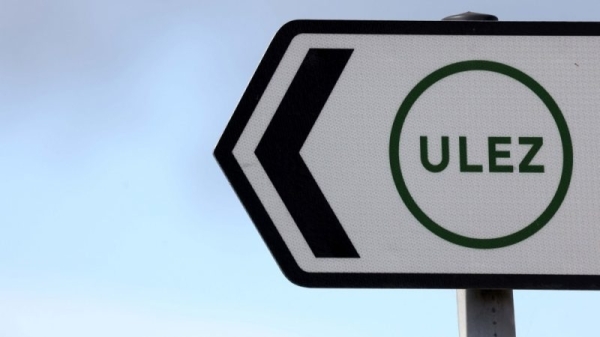Fight over low-emission zones stalls EU negotiations on road safety

A fight over the cross-border enforcement of low-emission zones is delaying an EU law that aims to facilitate cross-border enforcement of traffic offences, such as driving the wrong way and dangerous overtaking, to improve road safety.
The cross-border enforcement of traffic offences directive is one of multiple components of a road safety legislative package introduced in 2023. The main aim of the proposed directive is to end impunity for drivers who commit certain EU-wide traffic offences outside their country of residence.
An agreement could not be reached in Tuesday’s (6 February) negotiations between EU countries and Members of the European Parliament, with the outlook for the law being unclear as no new date for negotiations is set.
Chief among the sticking points was which traffic offences should be included into the group of offences that can be enforced across countries.
“For Parliament, the main objective is to ensure that the scope of this directive primarily covers those road traffic offences whose commission has a significant and direct impact on the level of road safety,” the Parliament’s chief negotiator Kosma Zlotowski (ECR) said in comments emailed to Euractiv.
“Such a link should be confirmed by unbiased criteria, data and analysis,” he continued. “For some offences, in EP’s view, such a clear link does not exist.”
Member states also want to see breaches against rules that restrict car access for cities, such as low emission zones, to be included in the law, which some factions of Parliament oppose.
These rules, known as Urban Vehicle Access Regulations (UVARs), are regulations that aim to increase safety and reduce emissions by limiting where cars can drive, posting an entry fee for cars to access certain areas of a city, or only allowing electric or hybrid vehicles to enter an area. They vary from city to city.
Reluctance on the centre-right
There was particular reluctance to include enforcing low-emission zone UVARs for foreign drivers on the part of a centre-right parliamentary coalition comprising the European People’s Party (EPP), liberal Renew Europe, and ECR groups.
The EPP said the Council’s focus strayed from enforcing “strictly road safety-related offences”.
“This discrepancy in stance between us and the Council is evident, with the EPP firmly opposed to restricting mobility based on environmental policies, viewing UVARs as inherently socially exclusive,” an EPP spokesperson told Euractiv in emailed comments.
“Our focus remains on addressing major traffic offences to enhance road safety within the EU,” they added. “Sometimes, prioritising fewer but more serious offences enables more effective enforcement mechanisms and significantly improves road safety.”
City representatives want inclusion
Some lawmakers, including those from the Greens party, lamented the decision to not include such offences in Parliament’s position.
City-level executives also expressed concern that it is unfair local drivers’ compliance with these pre-existing UVARs is enforced, but foreign drivers’ compliance is not.
Not including violating UVARs in the list of internationally enforceable offences is a “shame”, Thomas Lymes, policy adviser at Eurocities, a network of more than 200 large European cities, said.
“We believe that by including [UVARs] in the scope of the directive, we’ll make life easier for cities when it comes to the enforcement of these rules,” Lymes told Euractiv.
“We’re not talking about creating new low emission zones in Europe,” he said. “This is a bit unfortunate, but we’re also entering an election year, so I guess mobility is getting more and more politicised.”
UVARs are not popular among voters, he acknowledged, but including violating them in the list of internationally enforceable offences would in his view increase their social acceptance.
“By treating all citizens in an equal manner, this can help cities take more bold measures,” Lymes said.
The Council also wants to ensure equal treatment for resident and non-resident drivers, according to an EU official.
“The Council also clarifies that authorities can only use the Directive in question for zones that are reported in the navigation systems, to ensure that drivers will be duly informed before entering any of these zones,” the official added.
Potential for a deal
Other sticking points include whether to allow private debt collectors to collect outstanding fines from offenders, how soon after an incident offenders should be notified of their penalty, and the timeframe in which member states should help each other identify offenders.
As of now, a new date has not been set to continue talks.
Rapporteur Zlotowski said discussions were conducted in a “good atmosphere” and is hopeful a deal can be reached before the EU elections in June.
“A balanced and reasonable compromise has so far been found on many points. Of course there are differences between us, but they are few,” Zlotowski said. “I believe that there is room and enough time for compromise on this issue as long as we stay within the realm of evidence and facts.”
Read more with Euractiv




